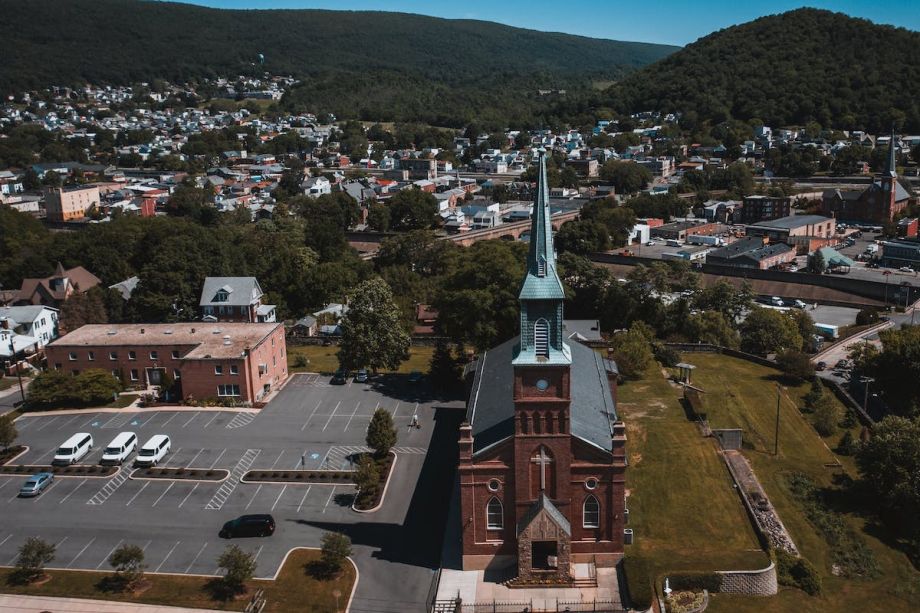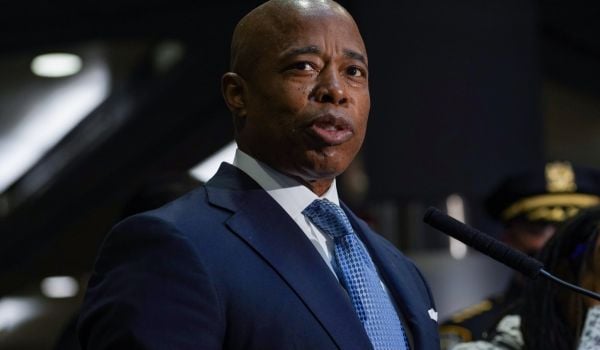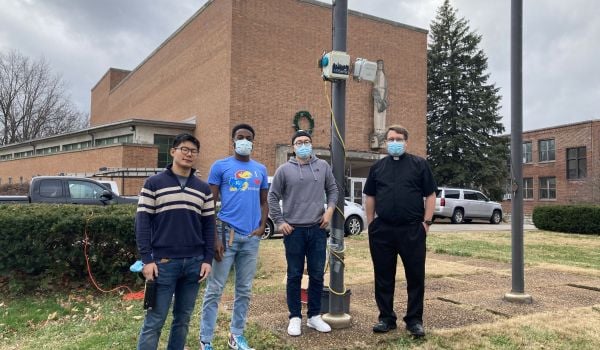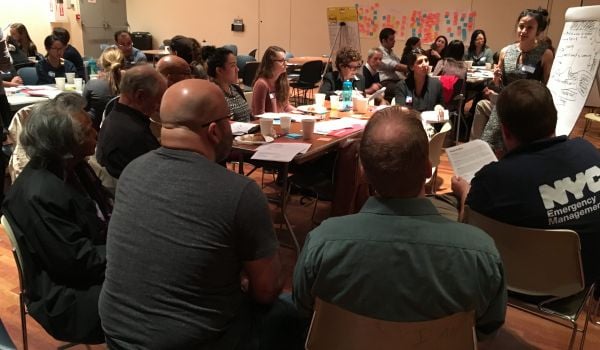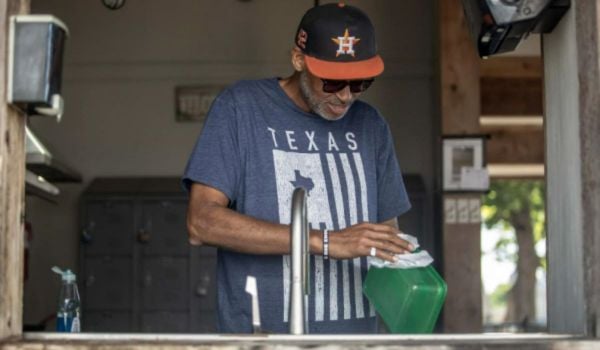This story was published as part of our joint Equitable Cities Reporting Fellowship For Reparations Narratives with Richmond’s VPM News.
As churches around the country move toward ways to redevelop their underused property for the public good, a Black-led suburban church just outside of Richmond, Virginia, has announced plans to redevelop one of its two locations into about 240 new housing units.
Sandston-based Village of Faith Ministries, led by senior pastor and elected official Michael Jones, is collaborating with a national homebuilder to help increase the housing stock in Metro Richmond.
The church is working to convert its Southside location — a 1.5-acre property in nearby Midlothian that includes a retail strip plus the church, itself converted from a former movie theater — into 192 apartments and 40 townhomes. The project will offer seven three-story buildings across the front section, with townhomes slated for the rear of the property in place of parking spaces.
Jones, who spent nearly two terms as part of Richmond’s City Council before being recently elected to the Virginia House of Delegates, says the church had originally purchased the property more than a decade ago as an investment for their congregation. Church leaders began looking for ways to reuse the property about five years ago, he says.
“We knew that, at some point in time, we would look to position ourselves to sell a portion of it, or all of it, to simply aid where our congregation is trying to go in the future,” Jones says. “We know that housing is a need.”
The 18-year-old ministry recently paid off its main property in Sandston. Redeveloping its Southside campus could help the church purchase a new building and pay it off within a few years, allowing church leaders to pass off a debt-free building to the next generation, says Jones.
While the church had been approached by several developers, ultimately the county’s building height restrictions impeded their plans.
“We tried to sell the back portion to do a housing project and assisted living facility for seniors, but to make the numbers work, the developer needed to go five or six stories high,” Jones says. “That was rejected by the county.”
According to Jones, Texas-based homebuilding giant D.R. Horton pitched a project that he thought would not only meet the church’s financial goals, but would also positively impact families within Chesterfield.
The development’s combination of apartments and townhomes will add much-needed housing diversity and density to the neighborhood. It will also offer future residents several amenities within walking distance: Situated beside and behind a grocery-anchored shopping center, the site strategically utilizes existing commercial surroundings, including banks, restaurants and a primary care office.
As faith-based communities around the U.S. seek to leverage their real estate to better serve their congregation and community’s needs, Jones says churches should be purchasing for the future, not the present – and they should use their resources to impact as many people as possible.
“Our churches should not be vacant Monday through through Saturday,” he says. With many U.S. congregations shrinking and aging, houses of worship are reactivating their property for the public good. Some are leasing their property out for commercial and retail use or developing community gardens, like the one Village of Faith has established at its Sandston campus.
But creating housing – especially affordable housing – has become a leading priority for churches.
Faith-based communities are increasingly finding unconventional solutions to help address the national housing crisis, from building tiny home villages to offering zero-interest loans. In response to so-called NIMBY resistance to new development (meaning “Not In My Backyard”), a growing faith-based YIGBY movement has responded with: “Yes, In God’s Backyard.”
The YIGBY movement says its mission involves “addressing the housing crisis by activating under-utilized faith community properties suitable for low-income housing.” Organized efforts are ramping up across the U.S., including its most recent win in California. In October, the YIGBY bill was signed into law granting religious institutions the authority to convert their land into housing, regardless of local zoning regulations.
Such conversions may soon become more common in Metro Richmond. Virginia’s version of California’s YIGBY bill, Faith in Housing for the Commonwealth, was heard by the state senate this week.
“Today in Virginia, too many of our neighbors and community members struggle to afford a place to call home,” the Commonwealth Housing Coalition said in a recent statement supporting the legislation. “We have an opportunity to help more faith based institutions help solve this problem by allowing them to build homes on their land.”
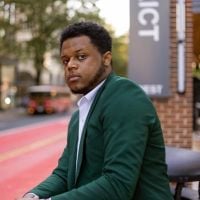
Barry Greene, Jr. is Next City's Equitable Cities Reporting Fellow For Reparations Narratives and a native of Southside Richmond, Virginia. Through his newsletter and moniker “density dad,” Greene is constantly working to spread awareness of the necessity to think of families with young children as well as seniors within the built environment. As a 2023 NACTO Transportation Justice Fellow, Barry aims to help Richmond return to its glory days of leading the industry in public transportation. You can catch him commuting by Brompton, bus or both in conjunction.

